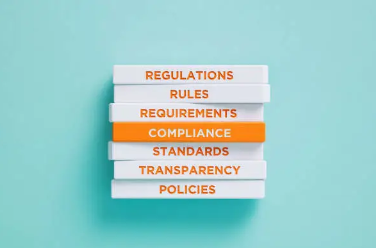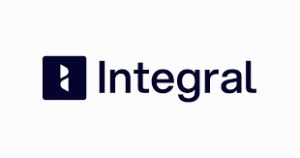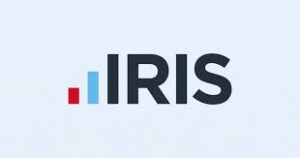Navigating UK Tax Compliance: A Guide for Bookkeepers
Missed a VAT update? It could cost your client thousands.

UK accountants ensuring full compliance with evolving financial and tax regulations.
Tax compliance in the UK has never been straightforward, but in recent years, the pace of change has made it even more challenging — especially for bookkeepers. VAT rules shift, payroll thresholds move, and HMRC’s push for digital tax reporting means bookkeepers must constantly adapt. Staying compliant isn’t just about keeping an eye on tax updates — it’s a full-time job.
For many bookkeepers, the struggle is real. Manually updating spreadsheets, adjusting payroll figures, and double-checking VAT calculations can eat up hours that would be better spent advising clients. Worse still, a single missed tax update can lead to costly errors, HMRC penalties, and unhappy businesses.
The good news is that tax technology has evolved to tackle these problems. Cloud-based accounting software, automation, and AI-driven tools are transforming compliance from a reactive headache into a seamless, built-in process. Instead of chasing tax changes, bookkeepers using the right tech can stay ahead — saving time, reducing errors, and making compliance effortless.
Why UK Tax Compliance is Getting More Complex for Bookkeepers
HMRC isn’t slowing down its push towards digital tax reporting. The introduction of Making Tax Digital (MTD) has already reshaped VAT submissions, requiring businesses to use MTD-compatible software for digital record-keeping and submissions. But that’s just the beginning — MTD for Income Tax Self-Assessment (ITSA) is next, and MTD for Corporation Tax will follow. For bookkeepers managing multiple clients, this means a growing need for digital-first solutions.
Payroll is another constant challenge. Every April, National Insurance rates, pension thresholds, and minimum wage rates change. Even a minor oversight — like forgetting to update an auto-enrolment pension contribution — can lead to non-compliance and underpaid employees.
Then there’s IR35, which determines whether contractors should be taxed as employees. Getting an IR35 classification wrong can mean thousands in unexpected tax bills, and the legislation has changed multiple times in the last few years. Keeping track manually is a huge risk for bookkeepers, especially those managing self-employed clients.
Traditional bookkeeping methods — manual data entry, spreadsheets, and paper-based processes — aren’t built for this level of complexity. Bookkeepers need automation to keep up with tax law changes instead of reacting to them at the last minute.
How Tax Technology is Solving Bookkeepers’ Biggest Compliance Challenges
Cloud-based tax software isn’t just a convenience — it’s becoming essential for bookkeepers who want to stay compliant without burning out. Here’s how it’s solving the biggest tax challenges.
Real-Time VAT & Tax Updates
Instead of manually updating VAT rates and tax thresholds, modern accounting software does it automatically. Platforms like Xero, QuickBooks, and FreeAgent integrate directly with HMRC, ensuring VAT calculations are always accurate. No more last-minute panic before a filing deadline — compliance is built into the system.
Automated Payroll Adjustments
Payroll software like BrightPay, PayFit, and Sage Payroll eliminates the risk of underpaying employees due to outdated tax codes. As soon as HMRC updates National Insurance or pension contributions, these platforms apply the changes automatically, reducing errors and ensuring compliance for bookkeepers handling payroll.
AI-Powered Bookkeeping to Prevent Errors
AI-driven bookkeeping tools such as Dext and AutoEntry can categorise transactions, extract financial data, and flag potential VAT issues before they cause compliance problems. Instead of catching errors after the fact, the system prevents them from happening in the first place — helping bookkeepers stay ahead.
IR35 & Contractor Compliance Made Simple
Dealing with IR35 used to mean hours of paperwork and uncertainty. Now, IR35 assessment tools integrated into contractor payroll platforms can determine a worker’s status automatically. This gives bookkeepers greater confidence when handling contractor compliance and reduces the risk of HMRC penalties.
The Real Impact: How Automation is Reducing Compliance Risks for Bookkeepers
The shift to automated tax compliance isn’t just theoretical — bookkeepers who have embraced these tools are already seeing measurable benefits.
Take VAT reporting. Before cloud-based software, many bookkeepers spent hours manually adjusting VAT calculations, double-checking tax rates, and submitting returns. The process was time-consuming and prone to human error. But with MTD-compliant software, VAT rates are updated automatically, transactions are categorised in real time, and returns can be submitted directly to HMRC. The result is fewer errors, faster processing, and significantly less administrative work.
Payroll automation is another major time-saver. Bookkeepers who once had to manually update tax codes every April now let payroll software handle it. This means fewer mistakes, fewer client queries, and less wasted time on administrative tasks.
When it comes to tax audits, the benefits of digital tax tools are undeniable. Bookkeepers managing fully digital records are far better prepared for HMRC checks than those relying on scattered spreadsheets. Instead of scrambling to pull together paperwork, they can generate a full tax history at the click of a button.
Why Bookkeepers Must Adopt Digital Tax Software Now
The UK’s tax system is only going to become more digital. HMRC’s push for Making Tax Digital is expanding, and bookkeepers who don’t adapt will find themselves struggling to keep up. Beyond simple automation, AI and predictive analytics will play a bigger role in compliance, helping bookkeepers anticipate regulatory changes before they happen.
For bookkeepers, adopting these tools isn’t just a smart move — it’s a necessity. Those who leverage technology will gain a competitive edge, reducing risk, saving time, and offering more value to their clients. The days of manually tracking tax changes are over. The future belongs to bookkeepers who automate, integrate, and stay ahead of the curve.






